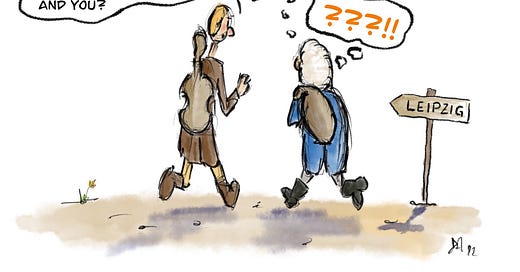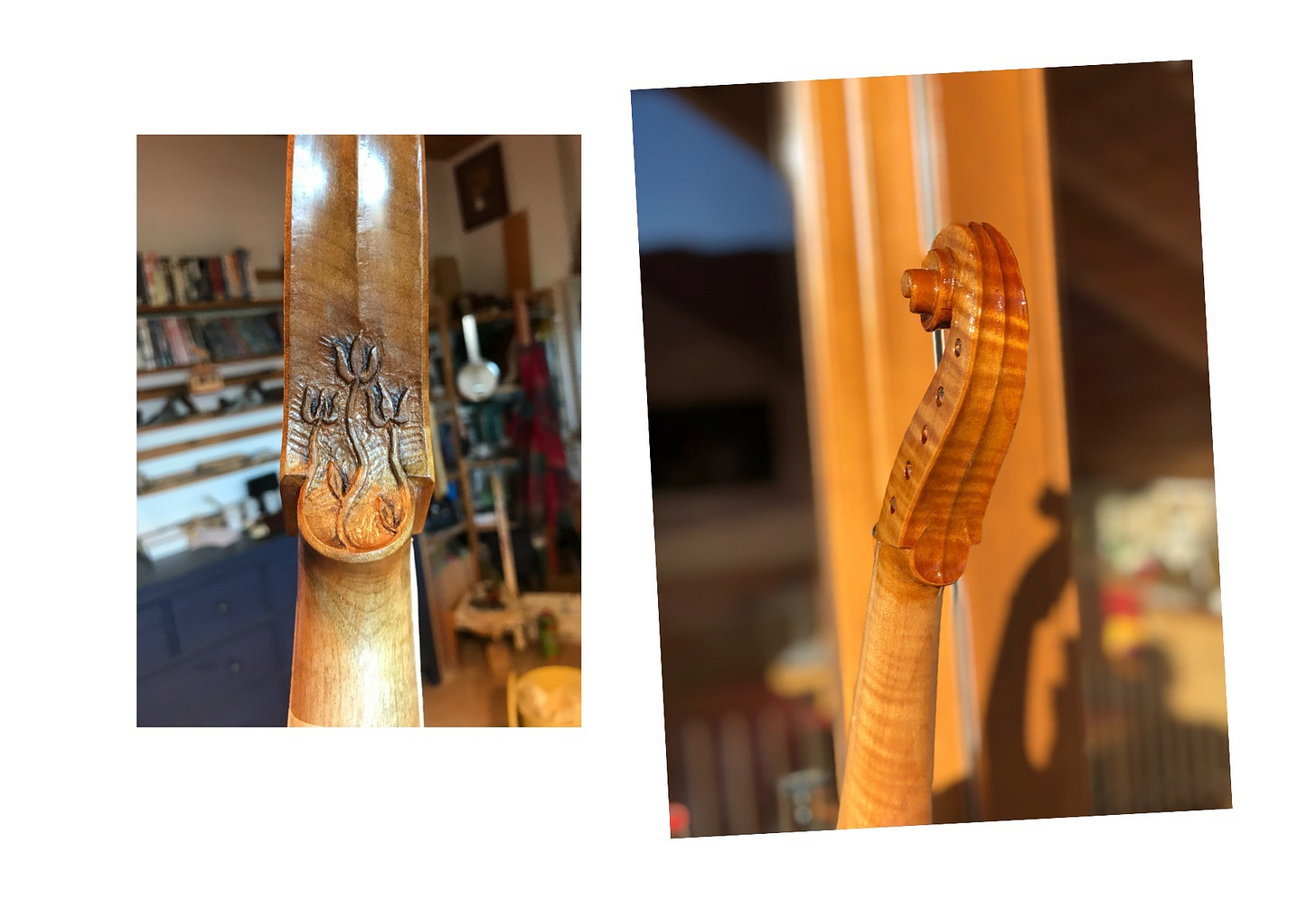In 1723, Bach had to take examinations in front of municipal authorities to be appointed Cantor in Leipzig. One of them was theology in Latin. The job of Cantor was not that of a Kapellmeister, writing and performing music. What the municipality was expecting from him was music every week for the two main churches and teaching all of the subjects taught at the Thomas school. The pay was not that high, and the cantor had to live in the school, in a tiny (and cold) attic room, besides the students’ dormitory. It is not surprising that both Telemann and Graupner refused to take the job!
Exactly, Bach was not the first choice! Maybe because he didn’t have a university degree (and asked to employ someone else to teach Latin in his place), or perhaps because he was known to be arrogant. He once escaped from a job when he accused of incompetence as a bassoon player, and in return, he was challenged to a duel.
Watch this interview with Sigiswald Kuijken about Cantata 22 and Bach’s audition:
Bach wanted that job because he wanted to write for the church. He wanted his music to translate God’s voice. And, he wanted to live in a town. He wanted his sons to grow in a place with education and career possibilities, which a court didn’t offer that much. Leipzig was probably the most important commercial place in that time, a place where three times a year people from all over the world came for the fair, and of course, went to the church on Sunday. And there, his music could have the widest audience one could think of in those days!
Fortunately for him, the audition required the performance of two cantatas composed for this purpose. He was a curious man, and he wanted to amaze and please the council. Probably, knowing that Telemann had been their first choice, he wanted to show that he too was up to date with the most fashionable music tendencies: even if he never travelled to Venice, he had Venetian music shipped to him regularly. So he did one unusual thing: in the continuo group, he specifically asked for a Violoncello.
I recommend this interview about Cantata 23 featuring both S. Kuijken and Lucia Swarts, who, as a gamba cellist, decided to learn to play da Spalla and gained a different, richer point of view about her instrument.
Bach was leaving a job at Köten, which caused him trouble because he had to serve two different bosses, and each time he did something for one of them, the other would complain, reduce his wage, search for an act of revenge, and they went as far as incarcerating him!
We can only imagine Bach’s discouragement when during the ceremony of appointment, by the municipality, of his new role as Thomaskantor, the religious authorities irrupted in claiming from them their right to appoint him, so that he knew that he had to obey them first!
Updates from our workshop
Here we are both in that fascinating process of varnishing. When the beauty of the wood tells you stories that you imagined when glueing the joints but then you forgot in the hours of making….
We used the same grounding, then Daniela’s will be spirit varnished and antiqued, while Alessandro’s is going for oil varnish.
This week I also took a bow rehairing course. It was an intense journey, six hours per day, giving high-quality (and, safe for the bows!!) rehair to almost every kind of bow! I am so happy I took this training!
Featured videos of the week
We extensively talked about them in this newsletter, so enjoy full performances here!









